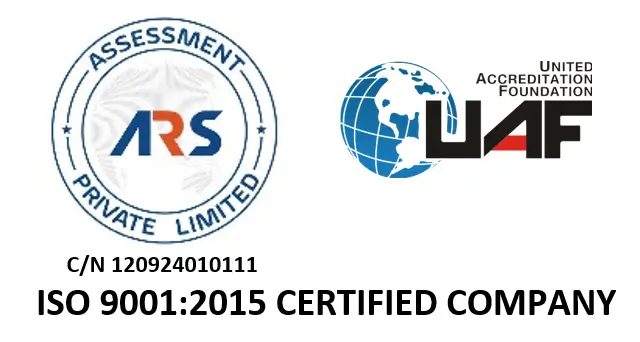Strong supply chain relationships are built on more than handshake deals. Contracts play a critical role in defining responsibilities, setting expectations, and protecting all parties involved. However, without careful planning, even well-intentioned agreements can lead to delays, disputes, and costly mistakes. These oversights can lead to delays, confusion, or even legal trouble.
In this guide, we’ll look at common supply chain contract mistakes and what you can do to prevent them from causing bigger issues later on.
Why Good Supply Chain Contracts Matter
Every supplier relationship should be backed by a clear, well-written contract. These agreements lay out the terms of your working relationship, like delivery dates, responsibilities, payment terms, and more.
When done well, they help reduce risk, protect your business, and keep projects on track. If a contract is rushed or too vague, it leaves room for misunderstandings that can quickly turn into costly problems.
Common Supply Chain Contract Pitfalls

Even the best partnerships can get messy when contracts are incomplete or unclear. Here are some of the biggest mistakes businesses make in their supply chain contracts.
Ambiguous or Poorly Defined Terms
Words like “reasonable,” “soon,” or “as needed” might seem harmless, but they leave too much open to interpretation. Without specifics, both sides may assume different things, and that can lead to conflict.
Inadequate Scope of Work
If the contract doesn’t clearly spell out what’s being delivered and when, you may end up with missing items or delays. A vague scope creates gaps that can easily lead to finger-pointing.
Weak Performance Metrics and SLAs
Without clear performance standards or service level agreements (SLAs), there’s no easy way to measure success. That makes it harder to spot issues early and hold suppliers accountable.
Missing or Weak Intellectual Property (IP) Clauses
If you’re working with designs, data, or product ideas, it’s important to state who owns what. IP clauses help avoid ownership disputes and protect your business’s creative work.
Incomplete Termination Clauses
Ending a supplier agreement shouldn’t leave you guessing. A solid termination clause should explain how to end the contract, how much notice is needed, and what happens next.
Vague Force Majeure Clauses
Supply chain disruptions can happen. Natural disasters, labor strikes, or shipping delays are all real risks. Without a force majeure clause, it’s unclear how those events should be handled—or who’s responsible.
No Clear Liability or Indemnification Clauses
If something goes wrong, who pays for the damage? Liability and indemnification clauses help define responsibility and prevent one side from absorbing all the risk.
Ignoring Governing Law and Dispute Resolution
If you don’t specify which laws apply or how disputes will be handled, solving problems becomes much harder, especially in contracts that involve suppliers in different states or countries.
How to Prevent Supply Chain Contract Pitfalls

The good news is that most contract issues can be avoided by slowing down and being more intentional. Here’s how to create contracts that protect your business and keep things running smoothly.
Emphasize Clarity and Precision
Be specific. Spell out what each party will do, when it will be done, and what happens if things don’t go according to plan. Avoid general phrases and use language that leaves no room for confusion.
Define a Clear Scope of Work
Make sure everyone understands what’s being delivered, the deadlines, and the steps involved. List the items, services, quantities, and any important details upfront.
Include Strong Performance Metrics and SLAs
Use measurable goals to track how your suppliers are doing. For example, you might agree that orders should ship within 48 hours or that defect rates must stay below a certain level.
Address IP Rights Directly
If your product involves designs, systems, or proprietary information, make it clear who owns what. This avoids surprises and protects your business’s ideas.
Write Out Termination Steps
Even good partnerships may end. Include a process for how to leave the agreement smoothly, whether it’s due to poor performance or a simple business shift.
Be Specific About Force Majeure Events
List the types of disruptions that qualify—like natural disasters, strikes, or transport breakdowns—and explain how each party should respond if they happen.
Clarify Liability and Indemnification
Explain who is responsible for what in case of loss, damage, or legal claims. This helps limit financial exposure and sets fair expectations.
Choose Governing Law and a Dispute Process
Decide ahead of time which state’s laws will apply and how conflicts will be resolved. This makes solving issues easier if disagreements arise later.
Best Practices for Better Supply Chain Contracts

Well-structured contracts are a key part of strong supplier relationships. Here are some best practices to help your contracts work for you:
Involve Your Legal and Operations Teams Early
Your legal team understands the risks and liabilities. Your operations team understands the day-to-day details of how the contract will work in real life. When both groups are involved from the start, you can build an agreement that’s legally sound and practical to manage. Waiting until the last minute to get their input often leads to delays, revisions, or missed details.
Avoid Using Generic Contract Templates
Every supplier is different, so using the same contract for every partnership can create blind spots. Instead of relying on templates that may be too broad, take time to tailor each agreement to the specific services, risks, and responsibilities involved. Customization helps prevent confusion and protects both sides.
Revisit Agreements Regularly
Businesses grow and change, and so do supplier relationships. A contract that worked last year might not fit your needs now. Set a schedule (ideally once a year or after major business changes) to review your agreements. Look for areas where terms need updating, new services need to be added, or outdated clauses need to be removed.
Set Up Reminders to Review Performance
It’s easy to forget about a contract once it’s signed. But tracking performance regularly helps you catch issues early. Set calendar reminders to review how your supplier is performing against agreed terms like delivery timelines, quality standards, or service levels. Use those reviews to make improvements, not just corrections.
Make Contracts Easy to Understand
A strong contract should be clear, not complicated. Avoid legal jargon where possible and use simple language that all parties can follow. When everyone understands what’s expected, it’s easier to stay aligned and avoid mistakes.
Taking a little more time upfront can save you a lot of trouble later.
Ready to Strengthen Your Supplier Agreements?
When your supply chain contracts are clear, detailed, and fair, you reduce risk and give your business a stronger foundation for growth. These agreements don’t have to be complicated. They just need to be thorough.
If you’re ready to improve how you approach contract negotiation, talk to us at LSI. As experts in supply chain risk management and supplier relationships, we help businesses create contracts that protect operations, reduce disputes, and support long-term success.
Visit LSI to learn how better contracts can help your business stay prepared and confident.






